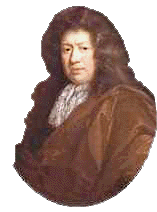

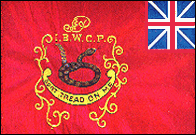
A productive weekend. First, bearing in mind the jackbooted Nazi IT Department’s plans to purge my PC of unauthorized software, I buy a 4GB mini-drive from the high-tech rabbit warren that is Wanchai Computer City. It doesn’t seem that long ago that a 1GB hard drive was considered a ridiculous extravagance for a desktop. Now they are churning these tiny things out. The ribbon attached to it is not to let the user hang it from his neck (though it will do that) but simply to enable him to find it. I can’t decide whether HK$380 is a rip-off for a tiny plastic and silicon box or an astounding example of how technological progress creates wealth. Actually I can – I simply imagine copying 2.8 days’ playing time of MP3s onto 5-inch floppies. It would be like moving a ton of sand with a teaspoon. Presumably, the device contains components from China. There was a time when everything from China was complete garbage. Back in the days when we were poor but happy, we depended on China Products stores for our sustenance, clothing and household goods. Envelopes with glue that wouldn’t seal the flap. Tins of ‘My Likes’ chocolates that looked superficially like they might be Maltesers but were more useful as ball bearings. I don’t even want to think about what went into the canned meats. And we in Hong Kong got the good quality ‘For Export’ stuff. That was the sort of memory we got from the Mainland then. .
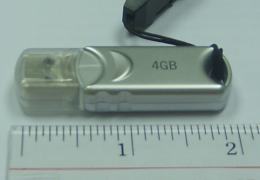
Third, I read through Chief Executive candidate Alan Leong’s long-awaited policy on political development. His modest proposal is universal suffrage in 2012. This includes allowing anyone to run and everyone to vote, and scrapping functional constituencies in the legislature. He also promises smaller geographical constituencies, which would mean that our more clownish lawmakers, like Liberal Party boss James Tien and Marxist firebrand Long Hair, would need to get more than 18 percent of the vote to win a seat. He would consider bringing the Legislative Council and Chief Executive terms into tandem, which would be necessary for his plans to adopt a more parliamentary, Westminster system in which the executive is linked with the majority party in the legislature. All this requires amendments to the Basic Law. The Basic Law that demands ‘executive-led government’? That’s the one.
None of this is calculated to win Leong friends among the black hair dye brigade in Zhongnanhai, but one especially suspect idea is that Beijing should no longer have the right to veto the Chief Executive’s choice of ministers. This is clear evidence that his secret agenda is to take over Hong Kong and deliver it into the hands of foreign-backed splittists who will then use the city as a base from which to overthrow the Communist Party and make China once again a vassal state of evil Western barbarians who wreck the feng shui by building railways and kidnap children in order to harvest their eyes. Or at least, that is how they will perceive it. It is a ‘challenge’. Lifting the ban on the Chief Executive belonging to a political party is no big deal – that was one of Tung’s idiotic ideas. Completely severing the civil service from politics is fine. But making the local Government accountable to the people’s representatives in the legislature rather than to the Red Emperor? Doesn’t he know what country he’s in?
Tue, 13 Feb
Tragedy strikes, as I approach the IFC Mall branch of Pacific Coffee this morning and find that it is boarded up. According to a sign outside, the premises are undergoing renovation, but I find this hard to believe. Apart from a patch of carpet behind a large armchair in the corner where my wild American friend Odell did something too disgusting to put on paper at this time of the morning, the place seemed to be in immaculate condition as of last week. My suspicion is that they are behind with the rent, and two pieces of evidence would support this theory. First, the temporary location to which customers are directed by another sign – adjacent to the top or bottom of a nearby escalator – does not seem to exist, unless the map they have provided is misleading and they have set up a stall far, far further away than any sensible person would be bothered to go. Second, a tenant at the Two IFC office tower has just signed a lease with the same landlord for HK$150 per month for each of 5,500 square feet of accommodation, adding up to nearly HK$10 million a year. This will be an investment bank, probably one of several in town that last year paid out 100-month bonuses to their uncultured and semi-educated but very tall staff. But Pacific Coffee, which brings beverages rather than horrendously mismanaged Mainland enterprises to market, operates on much narrower margins and is barely able to pay the pittances required to hire elfin bean-grinders and cup-washers.
What will replace the caffeine peddlers? A quick glance up and down reveals a serious shortage of skin-whitening vendors in this part of the mall – on the other side, nearer Two IFC, there are dozens. I vaguely recall seeing ads some time ago for some sort of gym-spa pseudo-health centre somewhere in this complex, and if my memory serves me well it had some sort of tanning facilities. If, with the investment banks’ help perhaps, these two lines of business were to merge and consolidate, people would go back to sporting their natural and original epidermic tone – the slightly anemic, fluorescent light-drenched hue that God intended. There would be no orange people to offend the eye, nor women walking around with the grey faces normally seen only on drained cadavers. In addition to the aesthetic improvements, a large amount of commercial space would become available, rents would come down, and Pacific Coffee would rise again. That would be worth 100 months’ bonus.
Taipei Mayor Ma Ying-jeou is indicted for embezzlement, resigns his party leadership and declares his bid for Taiwan’s presidency. (Or ‘presidency’, according to taste.) A busy day, obviously. My part in the rise of what was formerly the first ever non-corrupt Kuomintang politician was brief but memorable. It was 2001, I think. He was visiting Hong Kong, his birthplace, and was being taken for a relaxing weekend afternoon ride up the Mid-Levels Escalator – an essential excursion for the more sophisticated visitor to the Big Lychee. Local residents strolling down towards Central were greeting him, saying hello, shaking hands and even taking photos. I waved. He gave me a friendly nod.
So my role in the rising Kennedyesque star’s career has been, admittedly, limited. But at least we crossed paths. The last time he wanted to come to Hong Kong, two years ago, he was refused a visa by our no-nonsense Government, presumably exercising its high degree of autonomy under Beijing’s friendly guidance. He was refused entry in order to make the point that Taiwan is an inseparable part of the motherland and its people are fellow Chinese. As with the Communists’ insistence that the Taiwanese are dear brothers and fellow citizens who will be subject to military assault if they suggest otherwise, the finer points of the logic elude me, but I’m sure it all makes perfect sense.
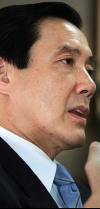
A reminder of Hong Kong’s relative decline appears in the American press this week. The Big Lychee has been a world leader in outbreaks of exotic diseases since the handover, but this claim to fame appears to be weakening with the news that another former part of the British Empire has beaten us in the race to proudly host what must surely be the ultimate post-1997 pestilence – Colony Collapse Disorder.
OH NO – it’s that time of the year again...

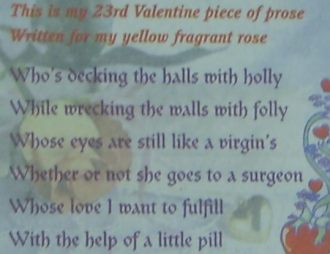
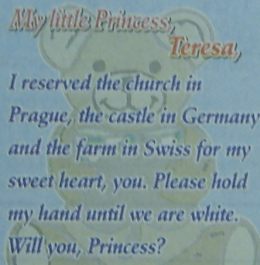
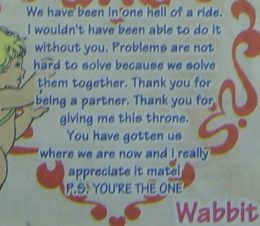
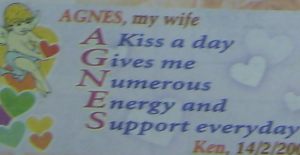



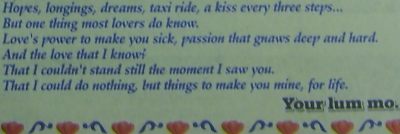
By the standards of the pro-democratic camp, Leong has done an excellent job of explaining why the current political structure needs to be changed. Since 1997, Hong Kong has been hijacked by an alliance of unthinking, self-indulgent civil servants and rapacious tycoons operating cartels. To compensate for the uncompetitive and sluggish nature of the domestic economy, the civil servants now intervene, diverting wealth into the tycoons’ outdated industries like construction, the port and tourism. Officials counter any complaints with scare stories about how Hong Kong is being marginalized and our only alternative is to pray for handouts from Beijing.
Leong doesn’t put it quite this concisely, but to see a pro-democrat come up with any such analysis at all is impressive. The media, meanwhile are more interested in the colour of his tie. Or at least they were until yesterday after Leong produced constitutional reform proposals that include amendment of the Basic Law to allow the Chief Executive to appoint whatever ministers he likes, without needing Beijing’s approval. What possessed him to mention this idea can only be guessed at – the pedantic idealism of fellow lawyer Margaret Ng would be my guess. This handed our community’s mouth-frothing patriots the opportunity to bang their heads against the wall while raving about Leong posing a ‘challenge’ to Beijing’s authority, all of which was reported at length by The SCMP and other members of the Media For Donald Committee.
The tie colour du jour is pink. Ambrose Leung’s synonym for tomorrow will be ‘faltering’.


With unmistakable alacrity, Donald Tsang orders a judicial inquiry, in an open court, into the allegations that his own officials or their appointees have threatened academic freedom and institutional independence at the Hong Kong Institute of Education. His readiness tells us two things. First, Sir Bow-Tie knows an opportunity to portray himself loudly as ranking alongside Voltaire, John Stuart Mill and Emily Lau as a guardian of intellectual liberty when he sees one. Second, nothing that can strictly be classified as a threat to academic freedom took place, and he knows it.
Who knows why schools tend to be nests of state-funded, backstabbing prima donnas masquerading as selfless seekers of knowledge and educators of the young? But it must have something to do with the mysterious influence tertiary level institutions in particular exert on people who get too close to them. After several years of reading books and having my essays brutally critiqued, we had Finals and I said, “Thanks, mail me the degree,” and I have never set foot in the place since. But some victims of alma mater-syndrome carry their old universities around with them as part of their lifelong emotional baggage.
When Arthur Li, previously Vice Chancellor of Chinese University, became Education Secretary he showed a curious determination to merge the HKIE with… Chinese University. I never did quite understand why Shatin Polytechnic should take over the city’s main teacher training facility, but then I didn’t care. Li then, if memory serves, proposed to merge the institute with HK University of Science and Technology instead. HKIE meanwhile demanded that it keep its ‘autonomy’ (but also, of course, its taxpayer-subsidized funding) and be renamed a university. If I read between the lines correctly, the Institute sort of said, “If we can call ourselves a university, we will attract better students, who will of course become better teachers, and Hong Kong’s junior and high schools will then no longer churn out generation after generation of unemployable retards.”
Which sounded reasonable to me, as an innocent bystander – especially if the Institute were privatized and split into competing facilities as part of the deal. Li and the people the Government appointed to the Institute’s Council were on a mission, however, and appear to have effectively ousted HKIE President Paul Morris and leant on his underlings to stop bad-mouthing officials. One of these underlings, Professor Bernard Luk, sent up the cry ‘academic freedom’. Luk is a founding member of the Civic Party, as is Sir Bow-Tie’s rival in the Chief Executive ‘election’ Alan Leong. The timing of the controversy, combined with Luk’s alarming claim, strikes Donald as suspicious.
The commission of inquiry will find that academic freedom refers to teaching and research, not whining – however justified – about your paymasters. And it will find that pure institutional autonomy is a fantasy if you accept public funding. Arthur Li’s chances of remaining in the cabinet, let alone being a serious contender for Chief Executive in 2012, will fall. Members of the Civic Party who were tempted to use this as a weapon against Sir Bow-Tie will appear foolish. In coming out of it defending our core values, shaming the Civic Party and undermining the political ambitions of the Tung-appointed Li, Donald comes out of it looking decidedly far-sighted.
